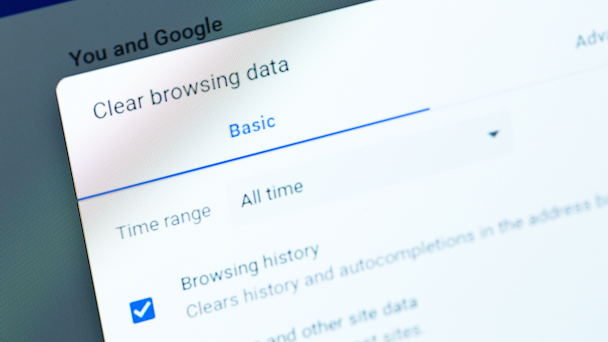Which sectors stand to gain the most from Google’s cookie disablement?
It’s been roughly three months since the tech giant announced that it will begin phasing out cookies early next year. Crenshaw Communications’ Chris Harihar predicts which industries will most likely benefit from the transition to a post-cookie digital landscape.

Google’s process of disabling cookies will start with 1% of Chrome users in early 2024. / Adobe Stock
Three months ago, after a stay of execution lasting several years, Google announced it would finally disable third-party cookies – albeit slowly, starting first with 1% of Chrome users in early 2024.
The world has been anticipating this shift for quite some time. But concerns from advertisers, agencies, regulators, adtech vendors and publishers have understandably delayed Google’s cessation of cookies.
Who stands to gain the most from the change? After seeing how Google’s announcement has played out over the last three months, let’s dive into the likely winners who are likely to ride the cookieless wave once the transition takes place.
Advertisement
Retail media: Retail media networks powered by first-party data instead of third-party cookies have seen remarkable growth over recent years. Market research firm eMarketer estimates retail media ad spending in the US will explode this year, rising by over a quarter to surpass $51bn. Surprisingly, retail media is growing faster than CTV – a scenario few could have imagined in 2020. This heightened interest in retail media is a byproduct of concerns about cookies. New data from the marketing platform LiveIntent shows that more than 80% of advertisers are turning to retail media as the demise of third-party cookies compromises their targeting. This points to significant growth opportunities for retail media networks from players like Walmart, Target, Kroger and Amazon. Similarly, adtech and retail media tech vendors like Yahoo, Criteo, The Trade Desk, Cooler Screens and CitrusAd will also benefit.
Advertisement
Attention metrics: The impending obsolescence of cookies is quickly causing attention-based measurement to gain popularity. Attention measurement is cookieless, using proxies to understand engagement. The main hurdle is scaling this form of panel-based measurement, but with cookies waning and the identity of the open web facing challenges, attention metrics are likely to capture advertiser focus and budget in 2024. Firms specializing in attention metrics, such as Lumen and Adelaide, will probably gain momentum. Additionally, verification players like DV (which recently acquired Scibids) are broadening their focus to venture into the attention space, and these brands have an advantage, given their existing interoperability and scale.
Suggested newsletters for you
Identity Providers: The past three years have seen growing interest in alternatives to third-party cookies and identity. However, a significant uptick in this interest can be expected once cookies are disabled. The real question is: Which solutions will dominate? While The Trade Desk’s Unified ID (UID) Solution 2.0 initially emerged as the go-to cookie substitute, the market won’t gravitate towards a single solution. A study by Lotame corroborates this, suggesting that advertisers are more interested in diversifying their investments across various identity partners. As a result, solutions like ConnectID, PanoramaID, nonID, ID5 and Ramp ID might experience faster adoption rates, outpacing UID 2.0, which largely seems to have plateaued.
Walled Gardens: Walled gardens might sometimes be down, but they’re never truly out. And more often than not, they dominate. And during times of uncertainty, advertisers often lean heavily on walled garden inventory. Platforms like Facebook, Google and Amazon offer predictability and reliability in advertising. Despite challenges posed by the loss of cookies and Apple’s privacy changes, Facebook remains resilient, with very positive recent earnings after a few tough quarters and a stock surge of nearly 70% over the past six months. As the CEO of adtech company Intango aptly puts it: “Big Tech offers scale and efficiency that’s hard for other platforms to match, particularly in the wake of identity deprecation. Their unparalleled access to data and performance inventory is simply irreplaceable.”
As the digital advertising landscape undergoes a seismic shift and braces for cookies to finally crumble, it’s becoming increasingly clear which sectors will likely flourish. Stakeholders who proactively recognize and respond to these changes will be strongly positioned to thrive in the post-cookie era.
Chris Harihar is a partner at Crenshaw Communications.
For more, sign up for The Drum’s daily newsletter.

